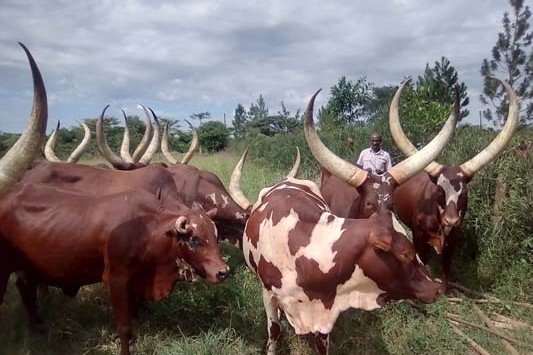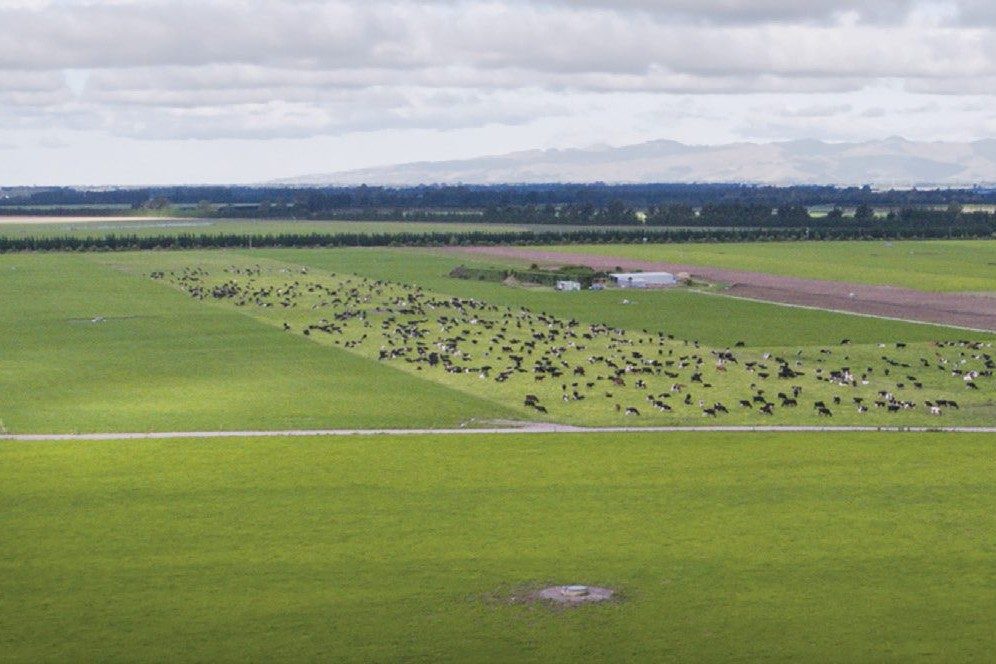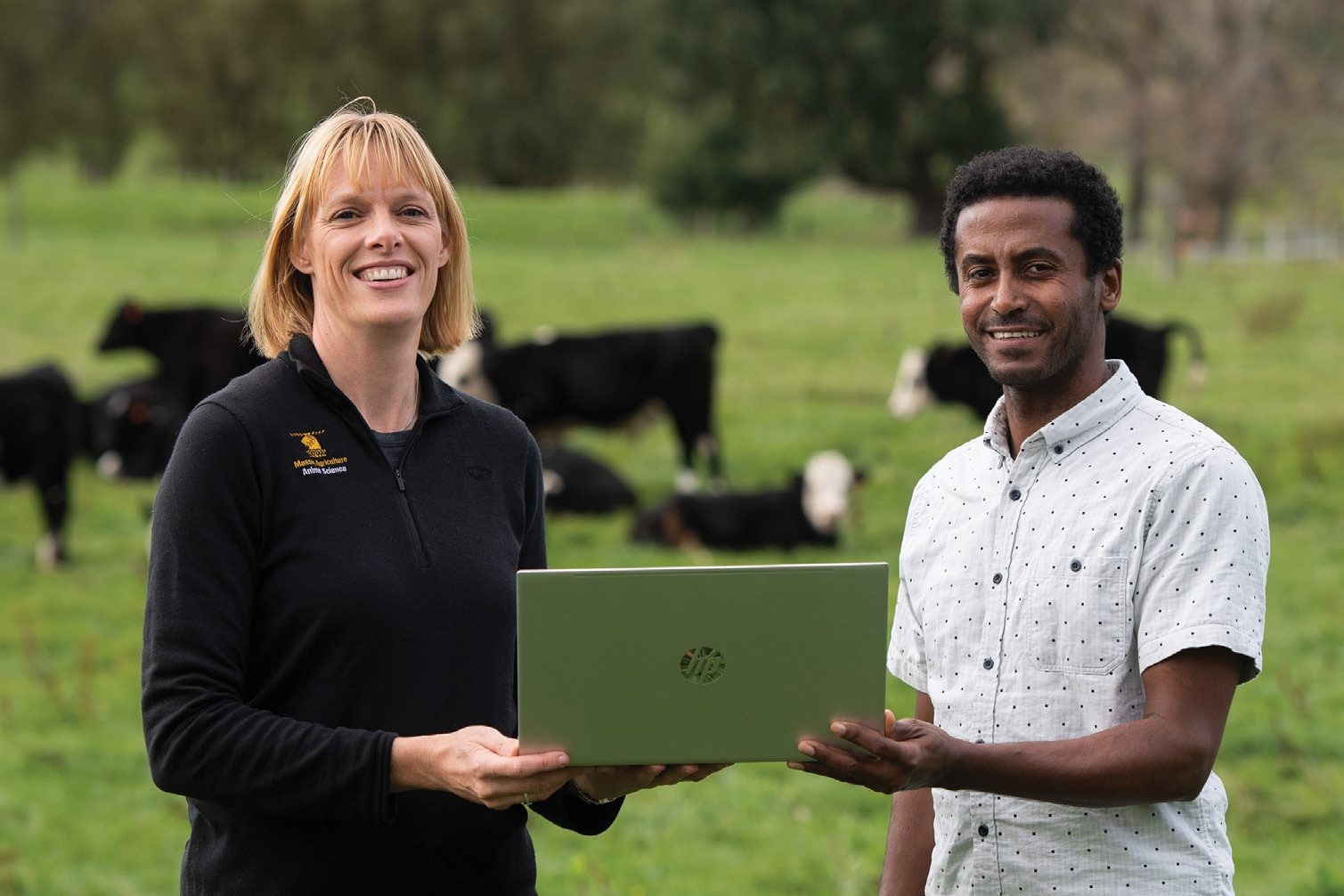Britain’s dairy farmers are waking up to a new nightmare as their government turns against livestock. By Tim Price.
Some British dairy farmers thought leaving the European Union would bring freedom and prosperity; others that loss of EU markets would leave them on a limb. None expected the Conservative government to ditch its promises and adopt a radical green strategy and sign a series of trade deals that undercut their markets.
Led by Prime Minister Boris Johnson and his latest wife, new environmental campaigner Carrie, the vision for Britain’s landscape is ‘rewilding,’ creating a park-like countryside where wildlife thrives and the public can roam. Under a new support mechanism called ELMS (Environmental Land Management Schemes) farmers will be paid for a variety of activities that deliver ‘public goods’. Food production is not on the list.
As payments under the EU’s Basic Payment Scheme (BPS) are phased out over the next six years, farmers are still unsure how ELMS will work, and whether delivering them is worth the effort and masses of paperwork and inspections that goes with them.
As blame for rising methane levels continues to be laid at the livestock industry, Agriculture Minister George Eustice further alarmed farmers by suggesting a tax on meat and dairy products could be needed to curb livestock numbers.
To underline the government’s disinterest in farming a series of post-Brexit trade deals have been triumphantly revealed. All offer easier access for food imports to the United Kingdom.
On January 11, the UK and New Zealand announced an agreement in principle on a free trade agreement. Widely viewed as a further indication of the UK’s desire to join the Comprehensive and Progressive Agreement for Trans-Pacific Partnership despite being thousands of kilometres from the ocean’s shores, the deal gradually opens up the UK market to tariff-free NZ butter and cheese imports over five years.
Reacting to the announcement of the UK’s trade deal with Australia, National Farmers Union President Minette Batters summed up farmers’ bewilderment: “There appears to be extremely little in this deal to benefit British farmers. I hope that MPs will now take a good, hard look at this deal to see if it really does match up to the government’s rhetoric to support our farmers’ businesses and safeguard our high animal welfare and environmental standards. I fear they will be disappointed.”
While farmers pin their hopes on politicians waking up to the reality of growing food to feed the nation and boost trade, the combined effects of loss of EU markets, labour shortages and production cost rises are providing a massive challenge to dairy farmers.
Loss of EU markets
Brexit has reduced trade between the EU and UK by 40% in its first year. Leaving the EU saw an end of hassle-free trade between Britain and EU neighbours. Farmers exporting milk, cheese or dairy products now face a mass of form-filling and checks. The costs, including onfarm vet inspections, have forced many exporters to abandon EU countries.
Simon Spurill, of the Cheshire Cheese Company, says: “We lost £270,000 (NZ$ 542,000) in one go. Brexit is the biggest disaster that any government has ever negotiated in the history of trade negotiations”.
His online retail business was hit immediately after the UK failed to secure a frictionless trade deal with the EU.
Simon says he lost 20% of sales overnight after discovering he needed to provide a £180 (NZ$361) health certificate on each EU export order.
He is now pursuing the domestic market with greater vigour but says the cost of marketing has gone “through the roof” because all his competitors are having to do the same.
Labour shortage
Brexit brought about the end of open borders for workers from EU countries. For years farmers had relied on workers from poorer EU countries for harvesting and dairy work. The labour shortage has seen wages double in some places and has hit farming hard with truck driver shortages disrupting milk collections.
Production Costs
Farmers across the world are being hit by higher input costs, from fertiliser, feed to machinery, but Brexit is increasing the impact. The challenges of labour availability and cost, alongside higher feed, fuel and energy bills, are likely to drive structural change in the dairy sector next year, with farms looking at robotic milking and reducing fertiliser use to cut costs.
While many have made decent profits over the past two to three years, depending on their milk contract terms, the rapid inflation of fuel and fertiliser costs is predicted to add 2p (4c)/litre to production costs in 2022.
Current labour costs for housed herds are at about 3.5p (7c)/litre and for grazing herds at about 5p (10c)/litre.
Others have swallowed the extra costs and mastered the secrets of the reams of paperwork now required to get products through to the EU.
In the north of Scotland, Connage Farm produces delicatessen cheeses for home and export markets from the farm’s 150-strong herd.
The cows, mostly Holstein Friesian with Jersey crosses and Norwegian Reds, graze clover pastures around the dairy and along the shores of the Moray Firth.
Owned by brothers Callum and Cameron Clark and their wives Jill and Eileen, Connage has expanded its direct sales through online cheese marketing and its milk and cheese sales through vending machines.
It has built up a strong social media presence to spread the word about the dairy and is growing steadily, with a team of 13 full and part-time staff.
Unlike many UK food producers, Connage has worked hard to learn how to deal with new EU paperwork – including laboriously completing hand-written forms in different coloured inks as now required, and put in place costly vet inspections to enable it to continue exporting cheese to EU countries following Brexit.
In the short term, Britain’s dairy farmers know they will need to make better use of grass and other fodder crops, control labour costs and avoid over-borrowing to stay in business long-term despite higher input costs. Despite continuing bad press and the huge impact of Covid-19, dairy product consumption has risen slightly, giving hope for the future for the industry.





